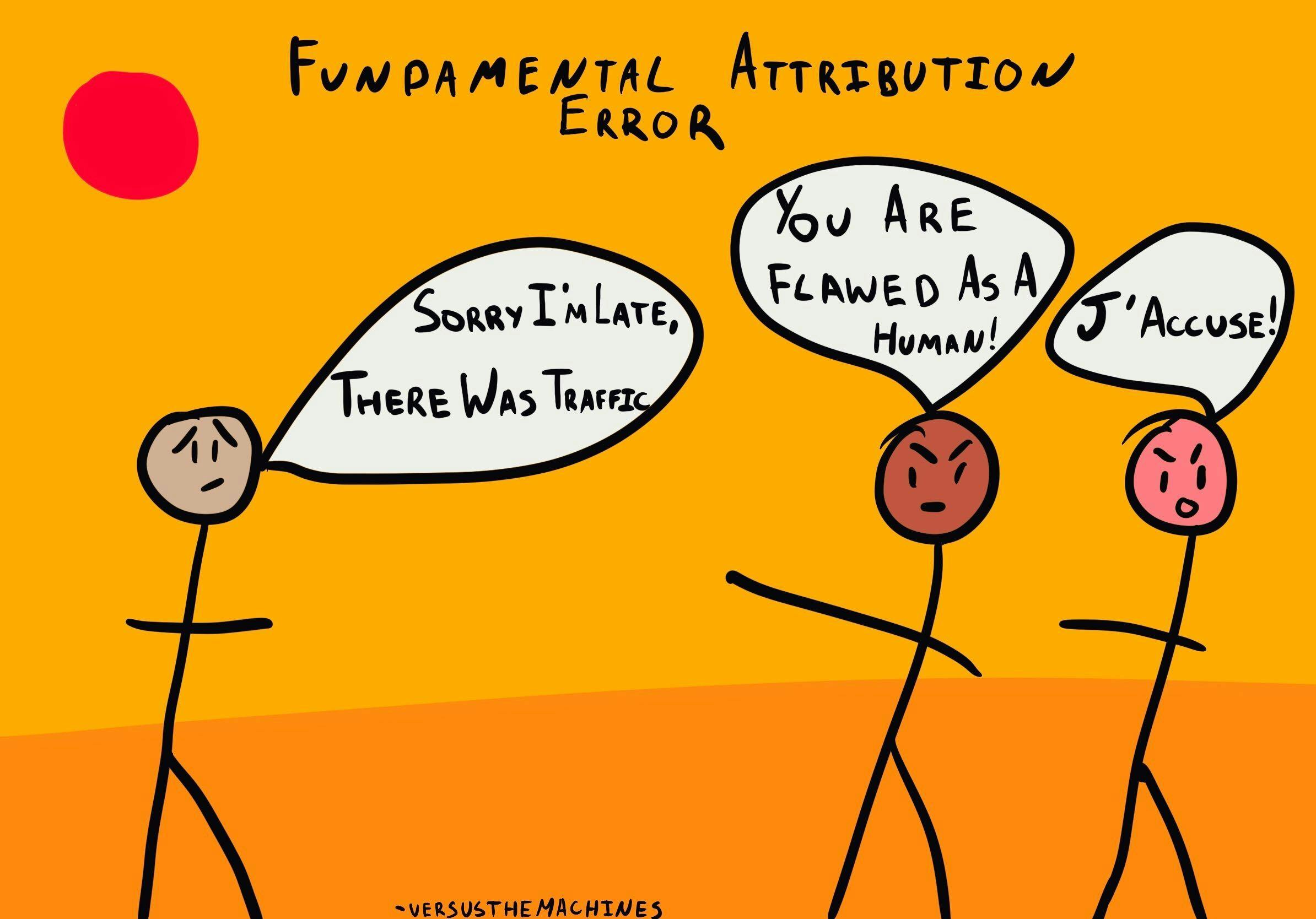Pourquoi sous-estimons-nous l'influence de la situation sur le comportement des gens ?
Quelle est l'erreur fondamentale d'attribution ?
L'erreur fondamentale d'attribution (EFA) décrit comment, lorsque nous portons un jugement sur le comportement d'une personne, nous accordons souvent trop d'importance aux facteurs dispositionnels et minimisons les facteurs situationnels.5 En d'autres termes, nous pensons que les traits de personnalité d'une personne ont plus d'influence sur ses actions que les autres facteurs qui échappent à son contrôle.

Où ce biais se produit-il ?
Imaginons que vous vous rendiez un jour au travail en voiture et que quelqu'un vous coupe la route. Furieux, vous décidez que l'autre conducteur est un égoïste qui ne se soucie pas de la sécurité des autres. À votre insu, l'autre conducteur coupe rarement la route et fait normalement très attention à la sécurité, mais en ce moment, il se rend à l'hôpital pour une urgence familiale et agit donc différemment de ce qu'il ferait habituellement.
L'erreur fondamentale d'attribution nous amène à faire des suppositions rapides, et souvent incorrectes, sur les autres sans tenir compte du fait qu'il peut y avoir une autre raison au comportement observé. Elle se produit souvent dans des situations où nous disposons de peu d'informations, car nous attribuons le comportement des gens à des facteurs situationnels ou dispositionnels.